The EU signed a Memorandum of Understanding (MoU) with the Government of Greenland for a strategic partnership to develop sustainable raw materials value chains.
Executive Vice-President for the European Green Deal, Interinstitutional Relations and Foresight of the European Commission, Maroš Šefčovič, signed the MoU with the Government of Greenland, Minister of Business, Trade, Mineral Resources, Justice and Gender Equality, Naaja H. Nathanielsen.
Greenland’s extensive natural riches are a major asset for reaping the benefits of global value chains, as it seeks to diversify its economy in a sustainable way. 25 of the 34 critical raw materials identified by the Commission as strategically important for Europe’s industry and the green transition can be found in Greenland.
The signature of the MoU will contribute to the development of sustainable projects along the raw materials value chains, and to the deployment of infrastructure required to develop them.
Five areas of cooperation
This MoU establishes close cooperation between Greenland and the EU in the following five areas:
- Economic and industrial integration of value chains for Critical Raw Materials and other raw materials. This includes networking, developing projects jointly, creating and promoting new business models, attracting investments, supporting access to finance, facilitating trade linkages, developing and integrating support for economic diversification, and ensuring the well-functioning and resilience of these value chains.
- Cooperation to leverage high international environmental, social and governance (ESG) standards, to ensure that Greenland’s minerals sector is a lever for sustainable and inclusive economic growth with local and domestic value creation. This includes sustainable exploitation of mineral resources in close dialogue with the Greenlandic society – individuals, organisations, enterprises and other stakeholders – taking fully into account the unique nature of Greenland’s pristine lands, and applying high ESG standards set out in legislation, agreements, guidelines and best practices.
- Deployment of infrastructure required for the development of raw material value chains. This includes taking into consideration the specificities of Greenland’s transport and energy infrastructure needs, subject to Arctic or subarctic conditions, and supporting the mobilisation of funding for this infrastructure.
- Strengthening of capacities and skills development along raw materials value chains. This includes developing skills at all levels in the raw materials industry and wider society.
- Cooperation on research and innovation and sharing of knowledge and technologies related to sustainable exploration, extraction, processing and refining of raw materials. Greenland is eligible for participation in the EU Framework Programme for Research and Innovation, and Earth Observation Data and Copernicus present promising opportunities with relevance for mineral exploration, i.e. mapping of deposits, monitoring of mining including waste management, and monitoring of environmental impact.
Next Steps
Following the signature of the MoU, the EU and Greenland will jointly develop a roadmap with concrete actions to put the Strategic Partnership into practice.
Background
The partnership signed today offers benefits to both parties. It ensures that Greenland’s resources serve to underpin sustainable, fair and inclusive socioeconomic development following the strictest ESG standards. It simultaneously enables the EU to deliver on its ambitious Green Deal, empowering the green and digital transitions in both regions.
The EU needs to secure a sustainable supply of raw materials, especially critical raw materials, as an essential prerequisite for delivering on green and clean energy objectives. As part of the action plan for Critical Raw Materials and the Critical Raw Materials Act the EU commits to develop strategic international partnerships and associated funding with resource-rich countries such as Greenland to secure a diversified and sustainable supply of critical raw materials.
The Commission has already established strategic partnerships on raw materials with Canada (June 2021), Ukraine (July 2021), Kazakhstan and Namibia (November 2022), Argentina (June 2023), Chile (July 2023), and Zambia and the Democratic Republic of Congo (October 2023) on behalf of the EU. The partnerships allow both sides to advance trade and investments into a secure, sustainable and resilient raw materials value chain, which is key to achieving the transition to climate-neutral and digitalised economies. The partnerships are in line with the Global Gateway strategy, the EU’s key initiative for investments for sustainable and high-quality projects in the world, taking into account the needs of partner countries and ensuring lasting benefits for local communities, and through which Team Europe will mobilise up to €300 billion.
The high resource potential in Greenland combined with EU’s demand for minerals and its expertise in prospecting, exploration, extraction, processing and refining, makes a solid base for the Partnership and supports the development of Greenland’s mineral resource sector as a future supplier of raw materials to the EU.
More information: European Commission

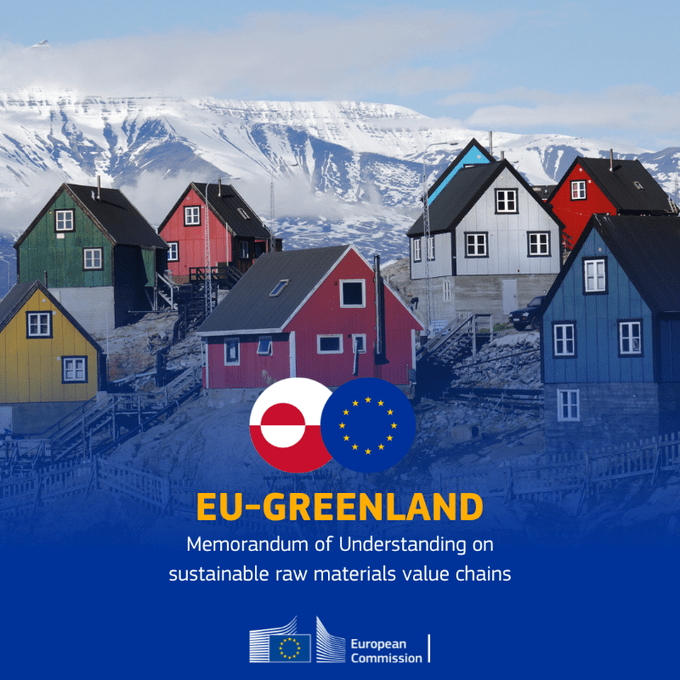
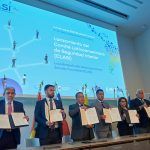
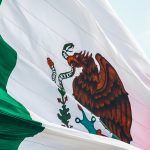

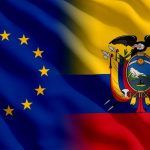
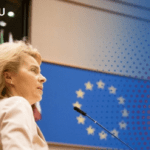
Leave a Reply